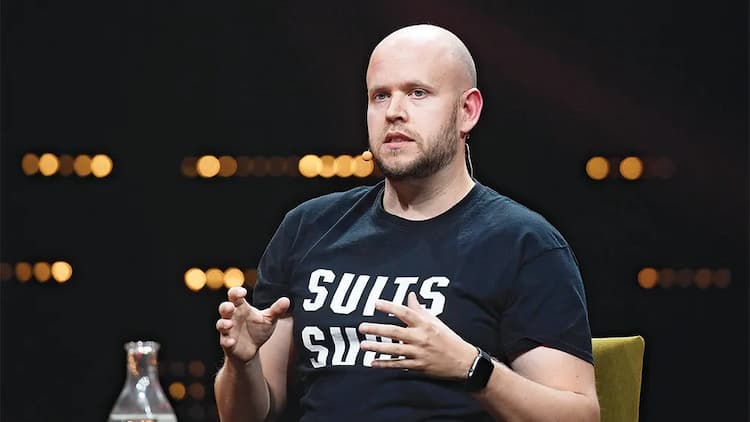Daniel Ek Biography
Daniel Ek is a Swedish billionaire entrepreneur and technologist who co-founded and is the CEO of Spotify, a music streaming service.
How old is Daniel Ek? – Age
He is 40 years old as of 21 February 2023. He was born in 1983 in Stockholm, Sweden.
How old is Daniel Ek? – Age
Ek grew up in Stockholm’s Rgsved neighborhood. In 2002, he graduated from IT-Gymnasiet in Sundbyberg and went on to study engineering at the KTH Royal Institute of Technology before dropping out to focus on his IT job.
Does Daniel Ek have children? – Wife
Ek married his longtime partner Sofia Levander in Lake Como in 2016. Bruno Mars played during Ek’s wedding, and Chris Rock officiated; he invited a large number of guests, including Mark Zuckerberg. Ek and his wife are the parents of two children.
Daniel Ek Net Worth
Forbes projected his net worth to be $3.3 billion as of December 2023.
Daniel Ek Spotify
Ek was affluent enough as a result of the sale of Advertigo and his past work that he decided to retire. However, after a few months, he recognized he needed a new project, which led to the creation of Spotify. When peer-to-peer music provider Napster shut down and another illicit site Kazaa took hold, Ek conceived the idea for Spotify. Ek stated that he “realized that you can never legislate your way out of piracy.” Laws can certainly help, but they do not solve the problem. The only way to fix the problem was to build a service that was better than piracy while also compensating the music business – that is how Spotify was born.”
In 2006, Ek founded Spotify AB with Martin Lorentzon in Stockholm, Sweden. Lorentzon had previously worked for and co-founded TradeDoubler, which had bought Advertigo, Ek’s previous startup. Spotify, the company’s legal music streaming service, was launched in October 2008. Initially, Spotify used a peer-to-peer distribution methodology similar to Torrent, but in 2014, it transitioned to a server-client paradigm. Spotify’s CEO is Daniel Ek. Martin Lorentzon, co-founder of Spotify, stated in October 2015 that he would step down as chairman, and Ek would take over alongside his role as CEO. As of April 2019, Spotify had 217 million active users and had raised over $2.5 billion in venture capital as of June 2017.

Billboard named Ek the most powerful person in the music industry in 2017. Ek purchased an extra $50 million in Spotify shares in May 2022, expressing an optimistic future view for the streaming giant. Spotify had 182 million paid customers at the time and was expanding at a 15% annual rate.
Daniel Ek Career
Ek played a senior part at Nordic sale organization Tradera which was gained by eBay in 2006. He also was the CTO of the program based game and design local area Stardoll and later began another organization Advertigo, an internet promoting organization. Advertigo was offered to TradeDoubler in 2006, after which, Ek momentarily turned into the Chief of μTorrent, working with μTorrent organizer Ludvig Strigeus. This finished when μTorrent was offered to BitTorrent on 7 December 2006. Strigeus would later join Ek as a Spotify designer.
Ek is a long lasting ally of Head Association club Munititions stockpile, and, in April 2021, communicated an interest in buying the football club on the off chance that it were set available to be purchased. In May 2021, Ek made a proposal to purchase the club for roughly £1.8 billion, which was dismissed by the proprietors.
In 2016, Ek and individual Spotify prime supporter Martin Lorentzon composed an open letter on the contributing to a blog stage Medium to the Swedish government saying that assuming specific changes to Swedish regulation in regards to lodging, tax collection, and training are not made, Spotify will be compelled to move from the country. All the more explicitly, Ek claims that the high charges in Sweden on investment opportunities makes it challenging to boost developers to work at new businesses when new companies experience difficulty contending with bigger organizations on compensation. Also, Ek claims the Swedish allowing strategy is excessively prohibitive, restricting the inventory of reasonable lodging.


